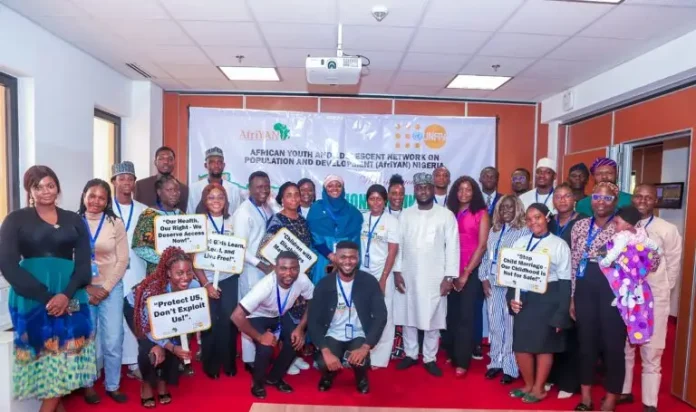News Investigators/ Ridwan Barade, the Majority Leader of Nigerian Youth Parliament, has called for the enactment of legislation that prohibits early marriage in the country.
Mr Barade made the call on the sidelines of a National Dialogue with High-Level Policymakers on Advancing the Rights of Girls and Young Women in Nigeria.
The dialogue was organised by African Youth and Adolescent Network on Population and Development (AfriYAN) Nigeria in collaboration with the National Youth Parliament, supported by the United Nations Population Fund (UNFPA).
It was held in commemoration of the Day of the African Child, celebrated annually on June 16.
According to Mr Barade, early marriage remains a barrier to education and personal development, especially for the girl child.
He stressed that no child should be allowed to marry before the age of 18, adding that early marriage robbed girls of education and the ability to make informed decisions about their lives.
“A child who is not yet done with education, who doesn’t even have full intellectual capacity, should not be in a marital home giving birth. It is wrong.
“We need to change that narrative if we want to move forward as a country,” he said.
Mr Barade also urged the government to intensify efforts in ensuring access to education, particularly in rural areas, and commended the ongoing student loan initiative.
He said that youths must also take responsibility by being good ambassadors of Nigeria and shunning social vices such as internet fraud, commonly known as “yahoo yahoo.”
“When we travel abroad and show our green passport, many times we are judged negatively because of a few bad examples. This must change. Youths must lead the way,” he added.
Speaking at the event, National Coordinator of AfriYAN Nigeria, Adek Bassey, said the dialogue was aimed at holding policymakers accountable and fostering collaboration with youth-led organisations across the country.
“We had more than 30 youth-led organisation leaders and activists in the room.
“They asked direct questions on budgeting, programming, and youth inclusion in policy formulation,” she said.
According to her, the presence of the Ministry of Youth and the full cabinet of the Nigerian Youth Parliament showed a willingness to engage with youth voices.
Ms Bassey stressed the need for a sustainable government-led youth development fund that youth-led organisations could access directly, rather than relying solely on international donors at all times.
“We have mapped and validated youth-led organisations across Nigeria. We want to see annual calls from the government where we, as responders, can apply to implement impactful programmes.
“Let us be funded by our own government,” she said.
She emphasised that a structural change was necessary for meaningful youth development, calling for stable budget allocations, institutionalised policies, and long-term engagement beyond conversations.
Another participant, Ms Nnyen Adomi, described the event as a timely conversation, adding that it offered an opportunity to understand what policymakers were doing and how the youths could contribute meaningfully.
“The Youth Parliament and Ministry of Youth shared ongoing projects and made commitments to collaborate with youth organisations to ensure that our actions are reflected in national policy frameworks,” she said.
The News Agency of Nigeria (NAN) reports that the dialogue served as a platform for youth-led advocacy, engagement with policymakers, and calls for concrete action on issues affecting girls and young women in Nigeria.
NAN


